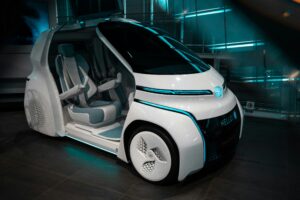Imagine a world where your morning cup of coffee could be delivered to your doorstep by a robot. Sound like something out of a sci-fi movie? Well, think again. This seemingly futuristic concept is quickly becoming a reality thanks to the advancements in autonomous delivery technology.
Companies like Starship Technologies and Nuro are leading the way in revolutionizing last-mile delivery with their fleet of self-driving robots and unmanned vehicles. These innovative solutions are not only efficient and cost-effective but also have the potential to reduce carbon emissions and alleviate urban congestion.
According to a recent report by McKinsey & Company, the autonomous delivery market is projected to reach $100 billion by 2030. With the rise of e-commerce and the increasing demand for contactless delivery options, it’s no surprise that companies are increasingly turning to autonomous solutions to meet consumer needs.
But what does this mean for traditional delivery services and the millions of workers employed in the industry? While some may fear job displacement, others see this shift as an opportunity for upskilling and the creation of new roles in the tech sector.
As we navigate this new era of autonomous delivery, one thing is clear: the future of business is quickly evolving, and those who embrace innovation will be best positioned to thrive in a rapidly changing landscape.



